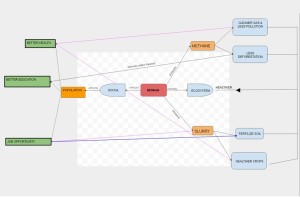I live in a small borough in Jessup, PA. The total population is about 4,600. The closest city is Scranton in the northeastern part of Pennsylvania located right off of Interstate 81. The city is broken into six sections. Some of the neighborhoods are pedestrian-oriented, others are more automobile suburb. The urban downtown area is mostly commercial. The population in the metropolitan area of Scranton is estimated at 562,037 in 2013. I have many connections to Scranton. I attend college and live within the metropolitan area. Another personal connection is both of my parents attended college in Scranton. The city is currently in a revitalization phase, trying to bounce back from almost going bankrupt in 2012. The city is also the setting for the NBC show The Office where its fictional paper company Dunder Mifflin is located. Scranton also hosts a marathon once a year that attracts many visitors.
The first city I selected is Copenhagen, Denmark. The main reason I chose this city is because of its successful traffic calming program. The city of Copenhagen and Scranton are similar because they both experience cold and snowy winters. Scranton has one main biking/walking trail that runs through part of the city, but it is broken in sections where the trail intersects with roads. Also, Scranton has a Tour de Scranton event that attracts many cyclists. Scranton does get traffic congested at certain times. Dedicated cycling routes would help to improve the city, while reducing the overall pollution. I believe it will attract more people and increase the quality of life. Since the demand for cycling is there, Scranton should look at ways Copenhagen was able to incorporate cycling into their city.
The next city I select is Bogota, Colombia. Bogota has weekly car-free events known as Ciclovias. The Bogota Ciclovias takes place every Sunday and on their holiday. The Ciclovias works by banning or restricting cars on almost 75 miles of streets throughout the city. This allows for people to use the streets safely and promote exercise. Scranton can adopt this type of event every easily. Scranton already has people have that like to cycle and walk and has some ways to include this. Also, it would be the most cost friendly of ways to include cycling and walking. This will help Scranton be more family friendly and attract more events and businesses. Scranton’s adoption of an event like Ciclovias will help promote a more sustainable development.

